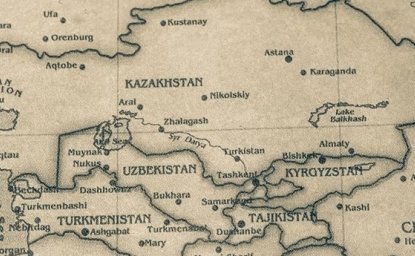Reflections on George F. Kennan: Scholar and Policymaker

"Communist rule ended in the Soviet Union precisely as George Kennan had predicted almost sixty years earlier—as a result of internal contradictions, not because of pressure from the outside," said Jack F. Matlock, former George F. Kennan professor, Institute for Advanced Study and former U.S. ambassador to the USSR at an 8 February 2007 conference at the Kennan Institute. Matlock and Angela Stent, professor of Government and director, Center for Eurasian, Russian, and East European Studies, Georgetown University, spoke on Kennan's contribution to American history as a policymaker. David C. Engerman, associate professor, History Department, Brandeis University, and former Title VIII-supported short-term scholar, Kennan Institute and Allen Lynch, professor, Department of Politics, University of Virginia, commented on Kennan's contributions as a scholar. John Lewis Gaddis, Robert A. Lovett professor of History, Yale University and official biographer of George F. Kennan, delivered the keynote address.
George Kennan had a special talent for explaining Soviet behavior, predicting its future policies, and prescribing policy for the United States, said Angela Stent. He is best known as the author of the concept of containment, first articulated in the famous "Long Telegram" sent on February 22, 1946. "Rarely does one idea have such a major resonance…and lasting imprint on American foreign policy," stated Stent. The containment policy was successful in that Soviet expansion beyond Eastern Europe was halted. "But we now know it was precisely the Soviet overextension in the Third World, the imperial overstretch, culminating in the war in Afghanistan, that of course hastened the Soviet Union's demise," she added. Kennan aptly predicted decades in advance that the internal contradictions of the Soviet economic system would lead to its downfall.
Kennan admired the Russian people's endurance as well as their culture and history, although, as Stent observed, "he was very critical of cynical, repressive manifestations of Soviet power." Kennan believed unilateral U.S. concessions would enable Soviet power, she said, while economic aid would allow the Soviets to strengthen their military base. Kennan advocated tough resolve and patience until potential dialogue with Russia might change the status quo peacefully.
His ideas often diverged from his superiors, Jack Matlock observed, especially after Dean Acheson replaced George Marshall as secretary of state. "Kennan was almost always at odds with most foreign policy questions of both administrations, whether Democrats or Republicans," he said. "But those of us in the government who knew the Soviet Union and dealt with its government recognize how profoundly correct much of Kennan's analysis was." Kennan grew increasingly critical of what he viewed as the excessive militarization of U.S. policy after his time in the State Department. As Soviet military strength increased and its grip on the countries it occupied tightened, these ideas came under heavy criticism, noted Matlock.
The panelists lauded Kennan's deep knowledge of Russian history, language, and culture, which enabled him to offer profound insights into Soviet thinking and actions during his diplomatic career and beyond. Kennan began a long career as a writer and thinker at the Institute for Advanced Study at Princeton University after leaving the State Department in the mid-1950s. He would be recalled to serve as ambassador to Yugoslavia from 1961 to 1963.
Ultimately, Kennan considered himself a historian, stated David Engerman. In Kennan's view, understanding Russia's past was essential to understanding its future. Kennan authored more than 20 books, most of them relating to Russia. He won the Pulitzer Prize and National Book Award for his 1956 book, Russia Leaves the War, and another Pulitzer Prize for the first of two volumes of his memoirs. Although Kennan wrote eloquent books as a historian, observed Engerman, praise and criticism for his scholarship often took the form of commentary on Kennan the diplomat. Kennan left a lasting legacy through organizations in which he was involved, including the Kennan Institute, which Engerman called "a vote of confidence in Washington of commitment to a new generation of Russian studies."
"Kennan wrote history as it happened," added Allen Lynch, and in his writings demonstrated a deep and empathetic reading of the sources and an emphasis on multilingual archival research. While Kennan's writings on history were always informed by the concerns of the present, according to Lynch, his books, especially his earlier works, are of enduring value to historians: "His two-volume series on Soviet-U.S. relations survived a generation of revisionist assault and is still regarded as indispensable."
"As a writer, Kennan is remembered for elegance of prose as well as the influence of his ideas, and his books have withstood the test of time," said John Lewis Gaddis. Beyond the written word, he continued, Kennan had a special talent for connecting with audiences when he spoke on issues ranging from nuclear dangers to environmental concerns. Yet, Kennan's diaries reveal the personal side of a self-critical man. "He held himself to standards he felt he never reached," concluded Gaddis.
Authors



Kennan Institute
The Kennan Institute is the premier US center for advanced research on Eurasia and the oldest and largest regional program at the Woodrow Wilson International Center for Scholars. The Kennan Institute is committed to improving American understanding of Russia, Ukraine, Central Asia, the South Caucasus, and the surrounding region though research and exchange. Read more




